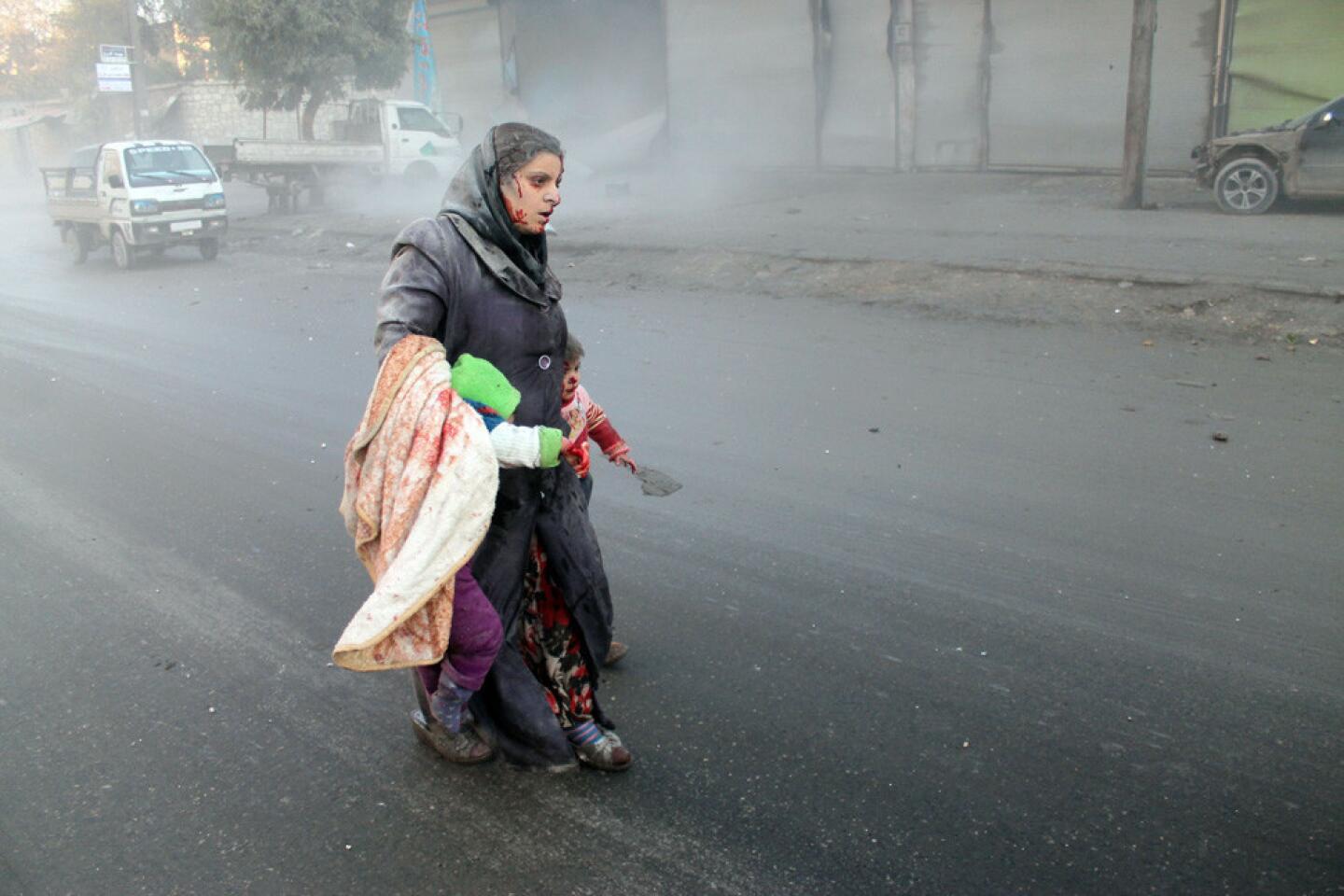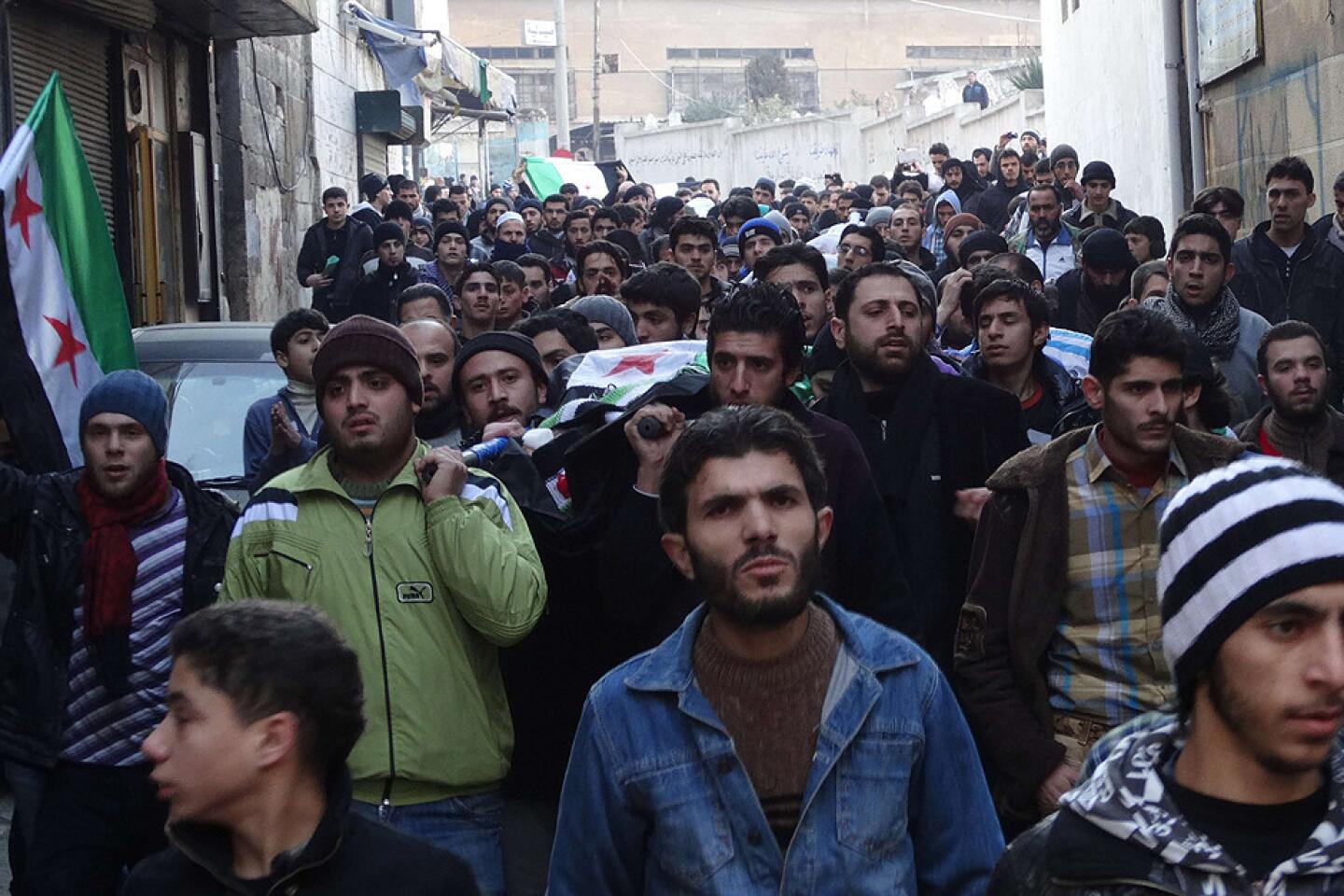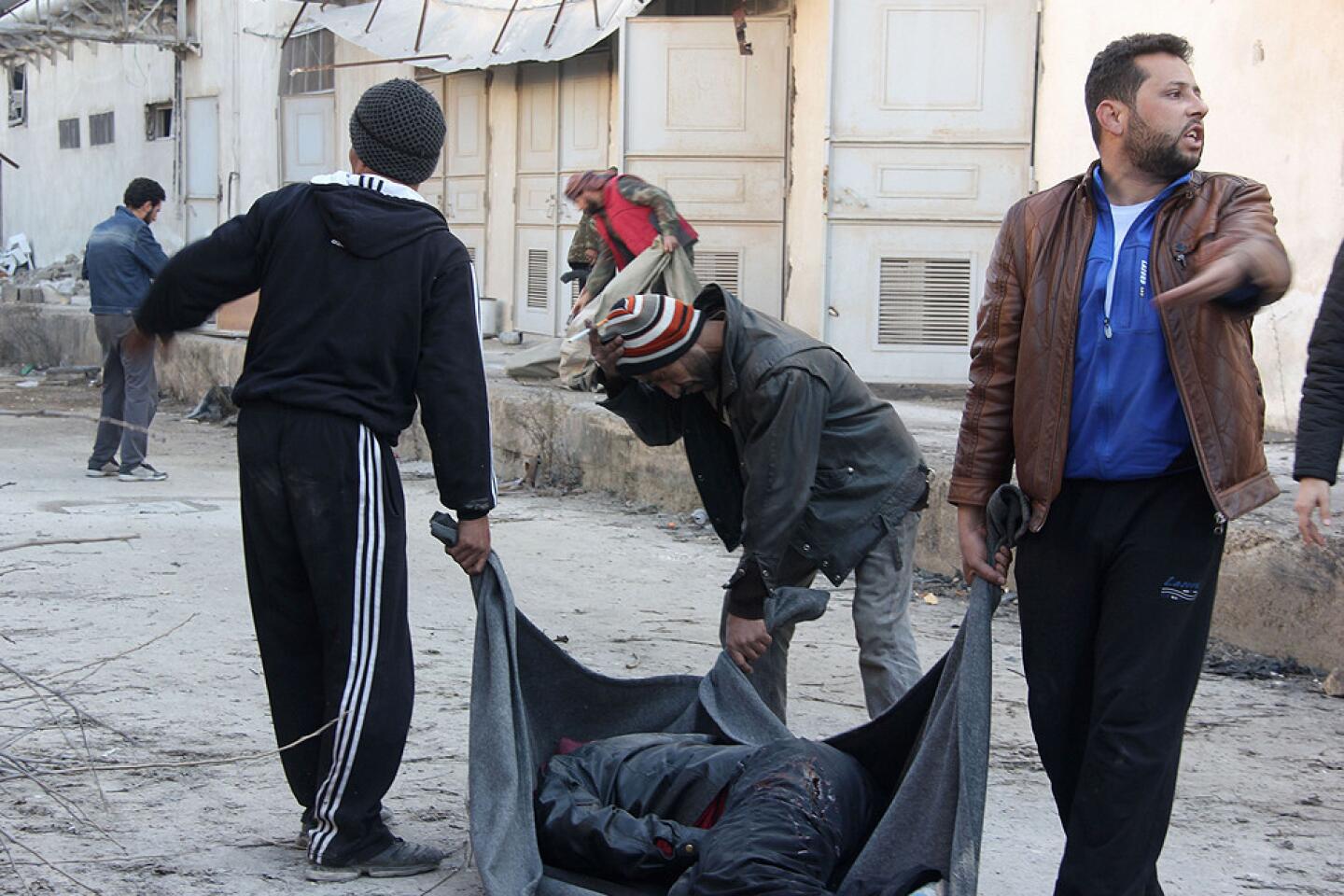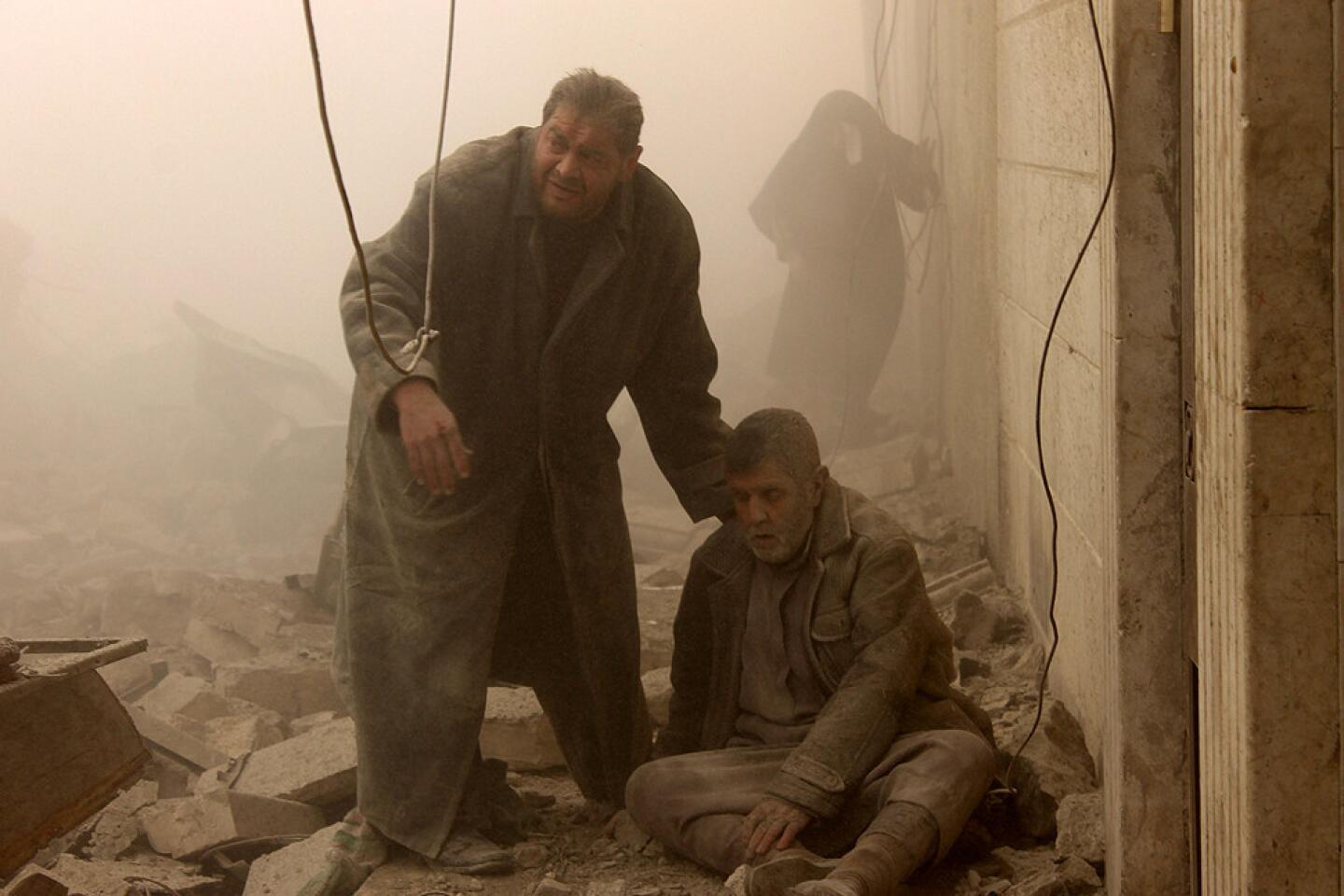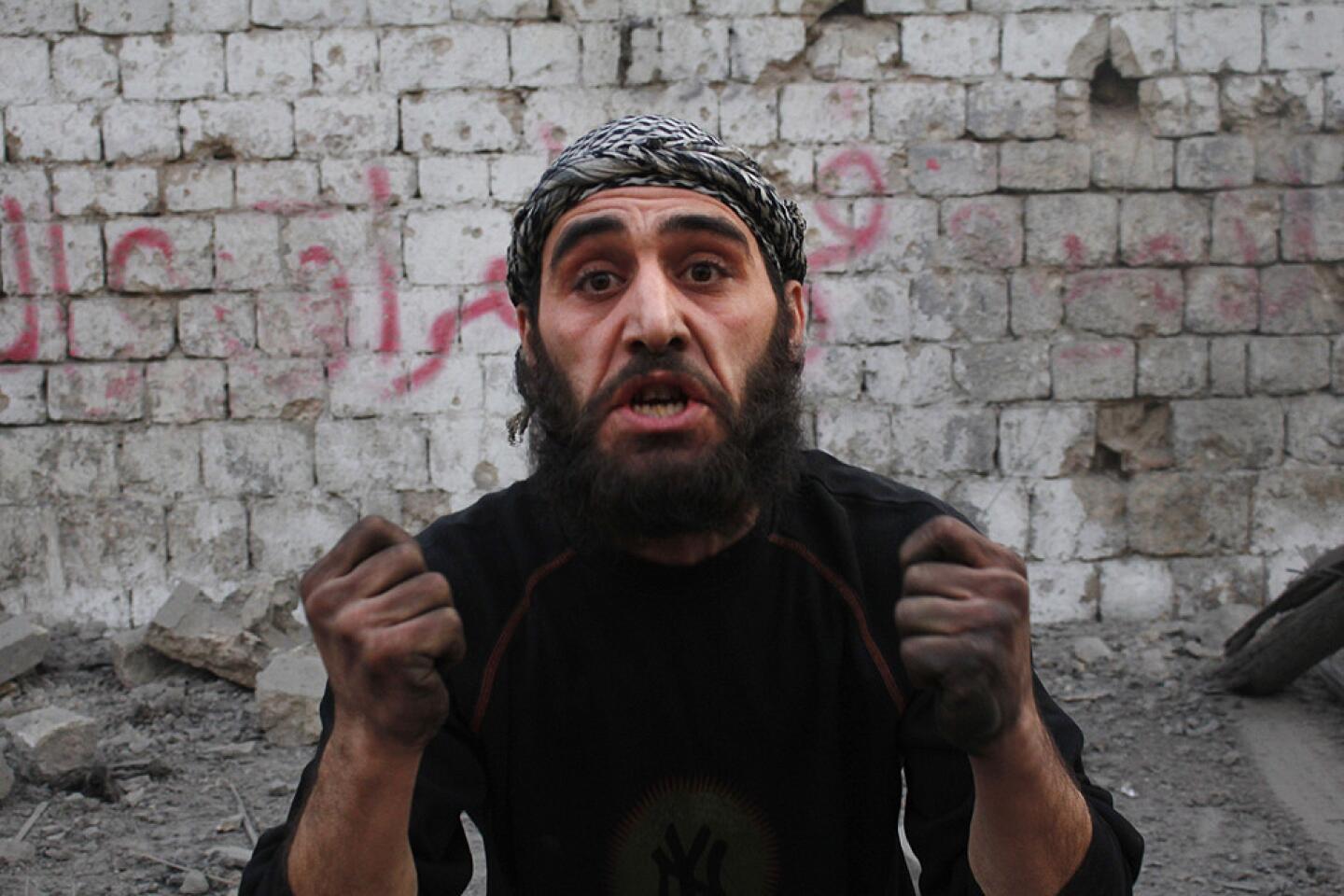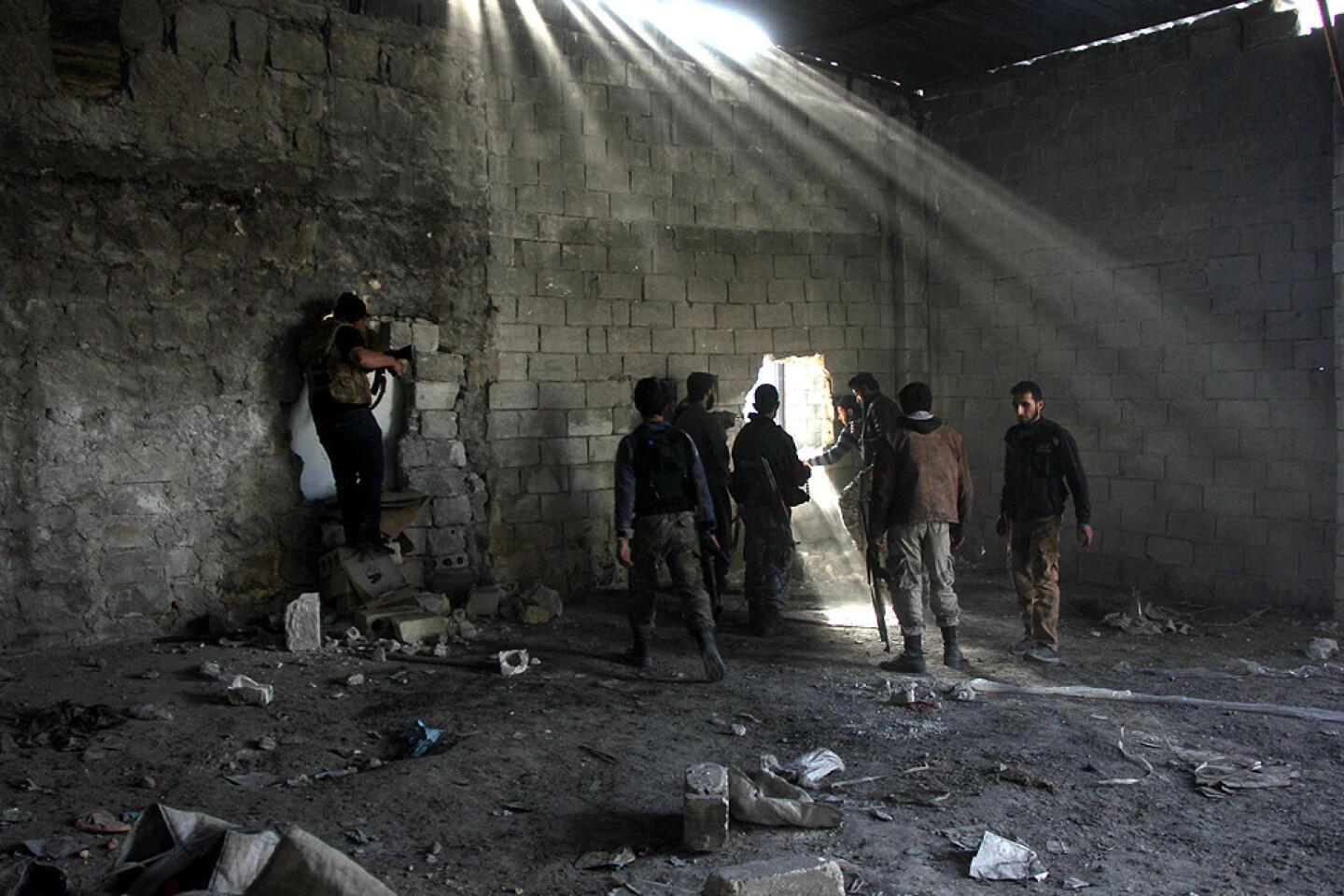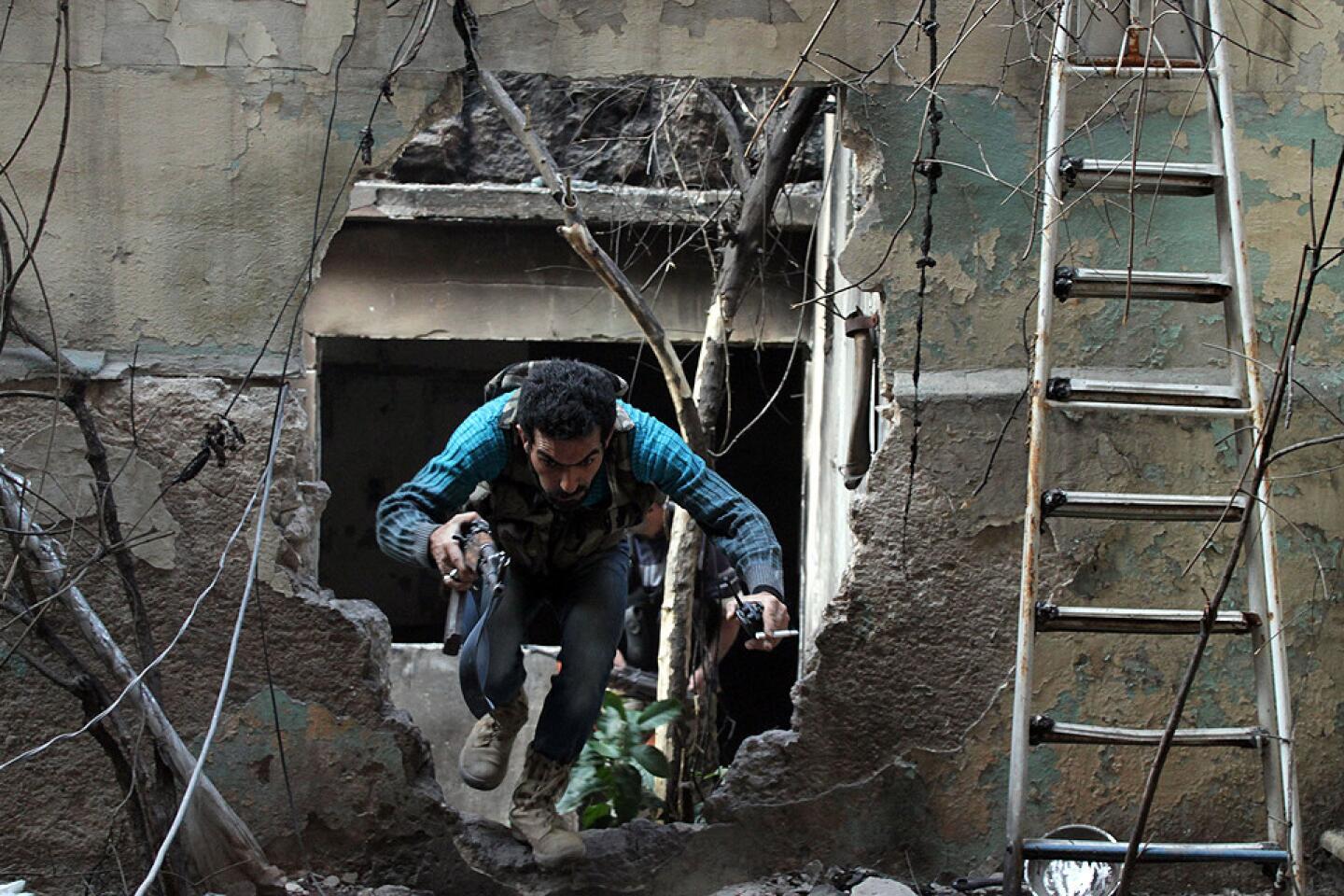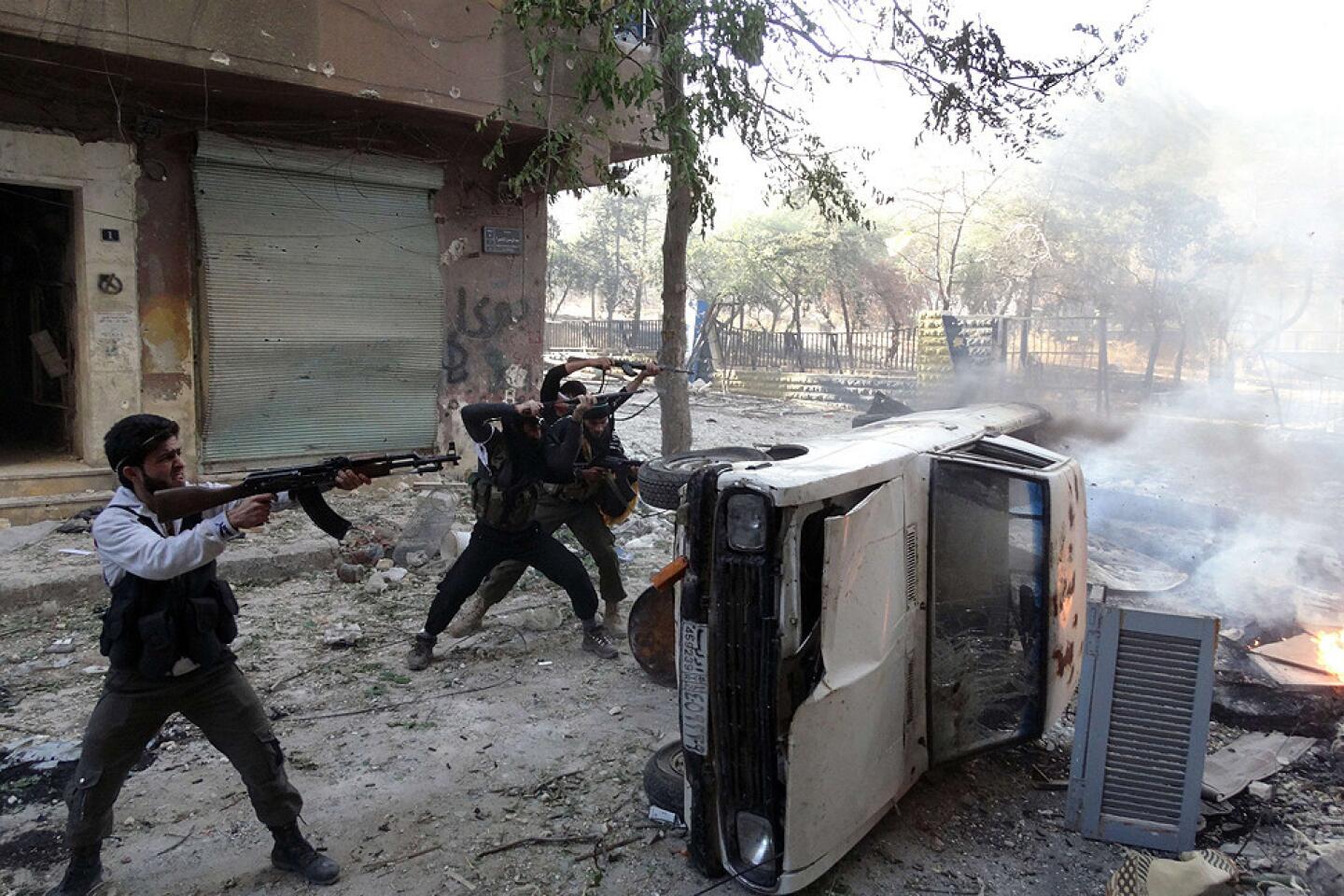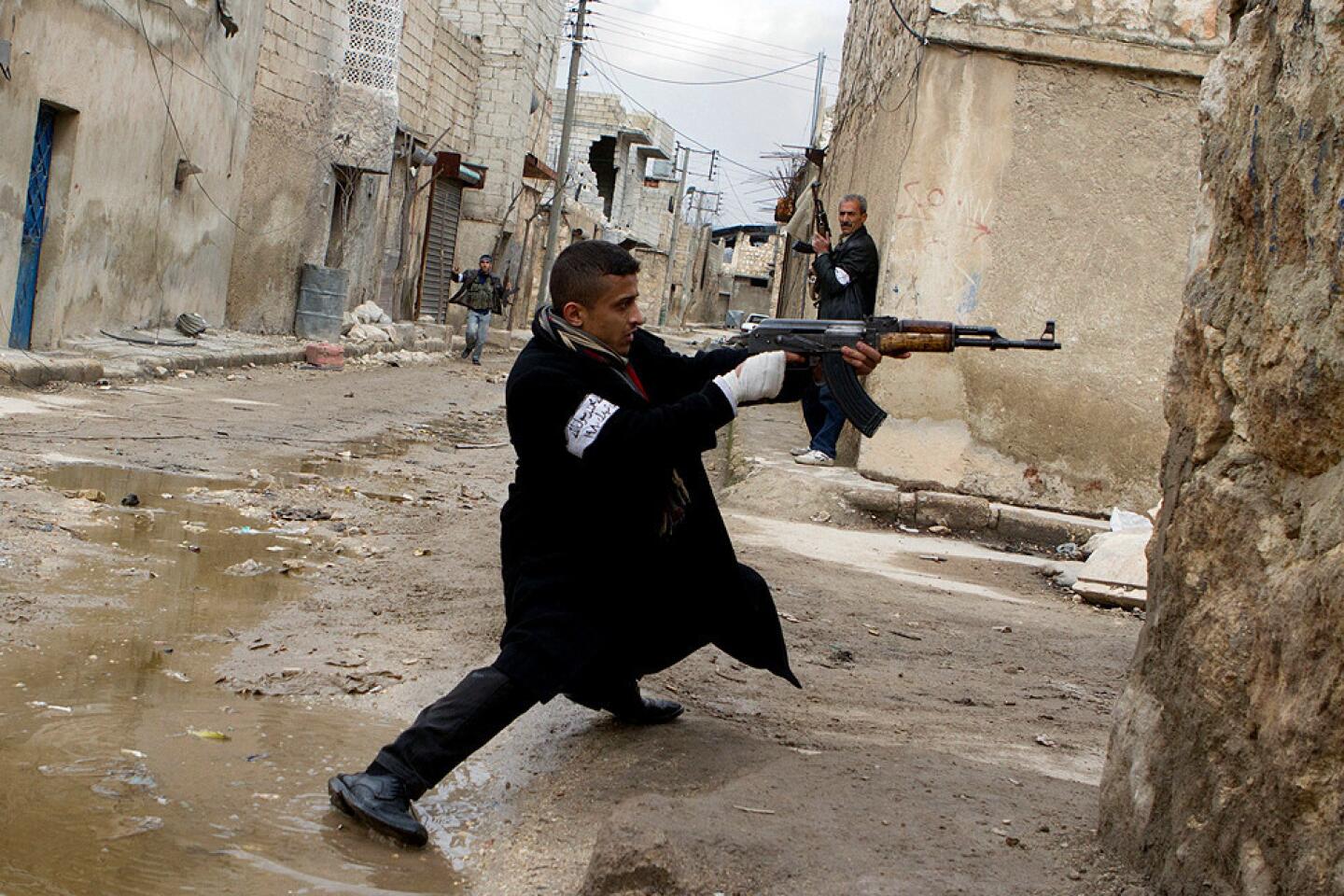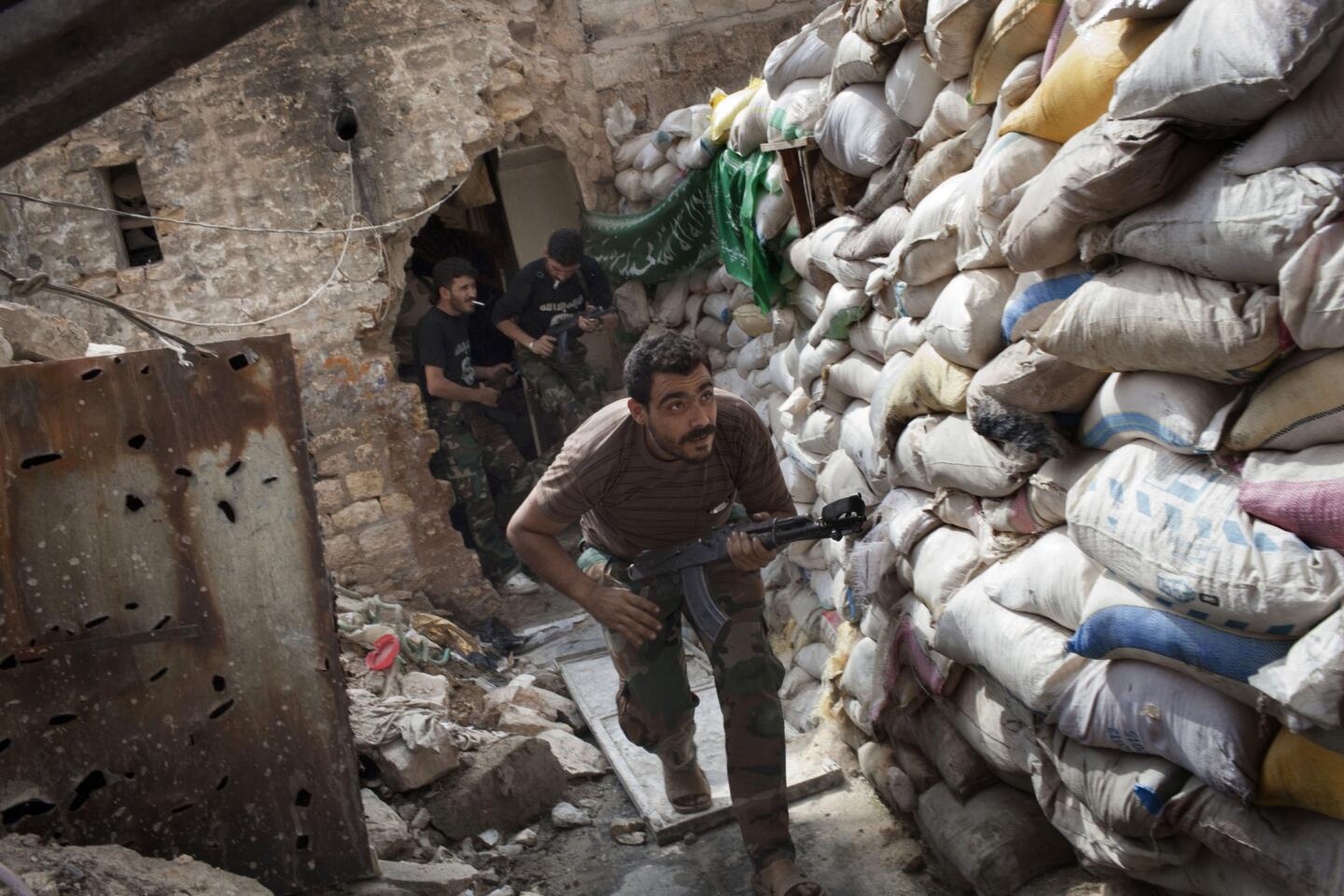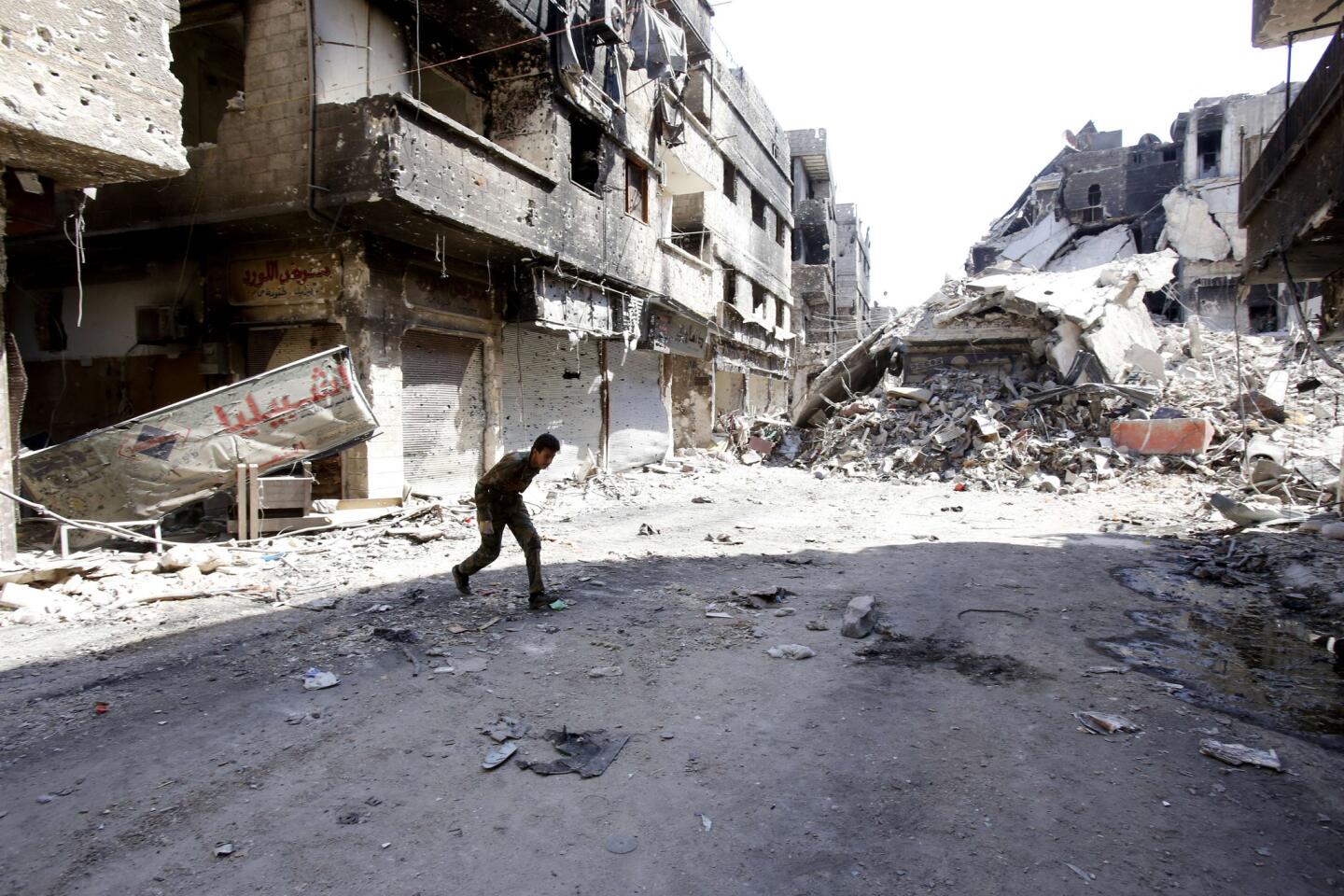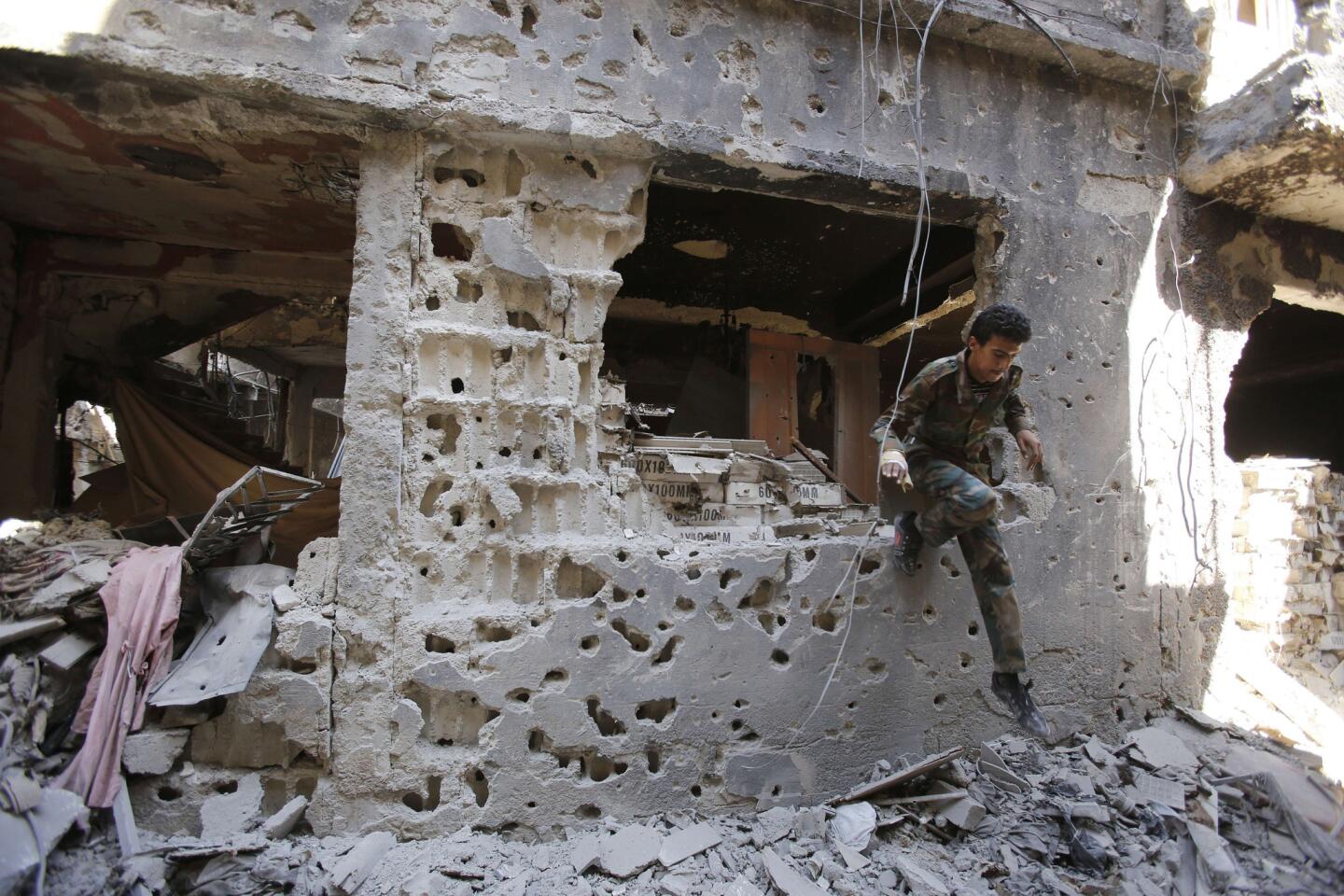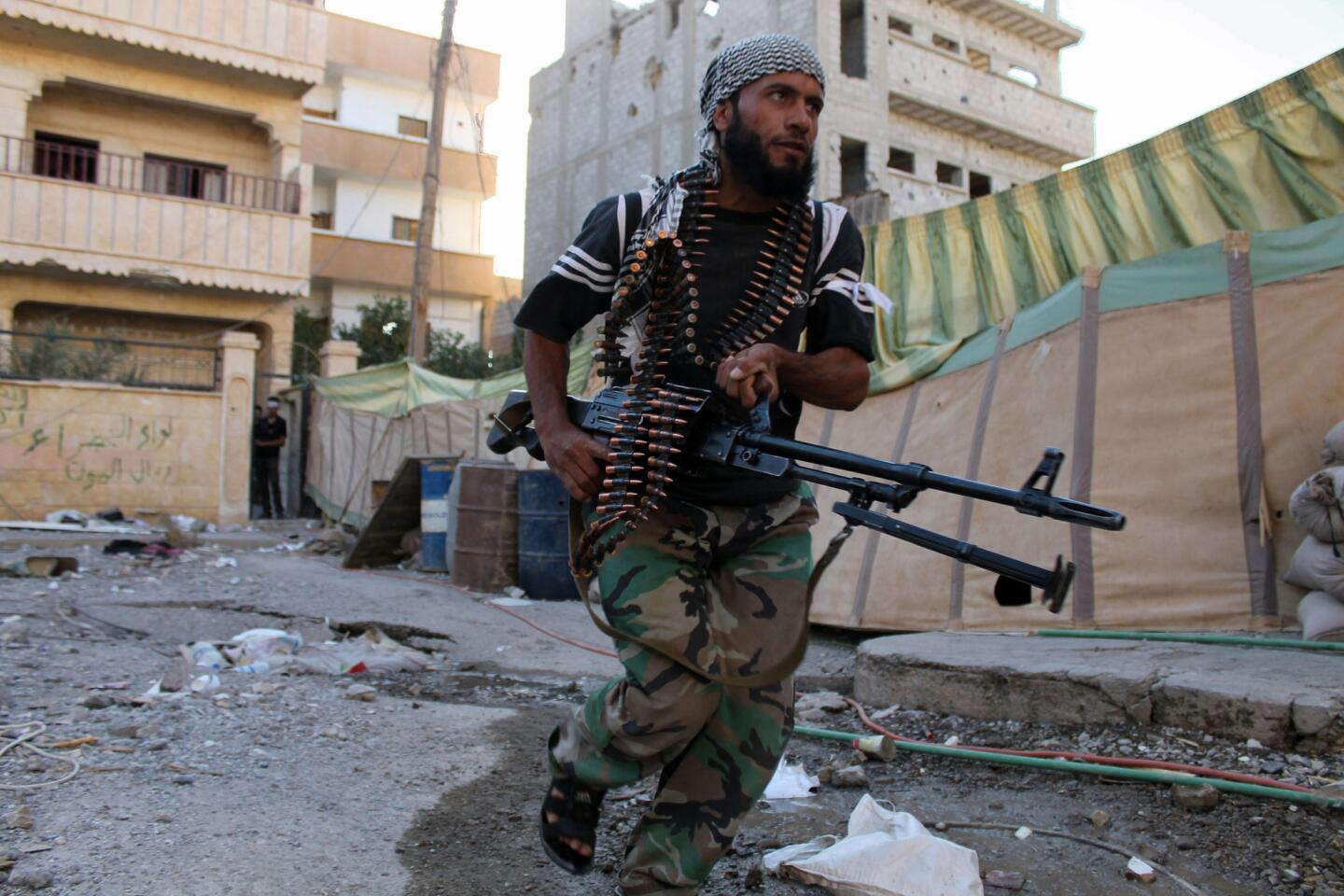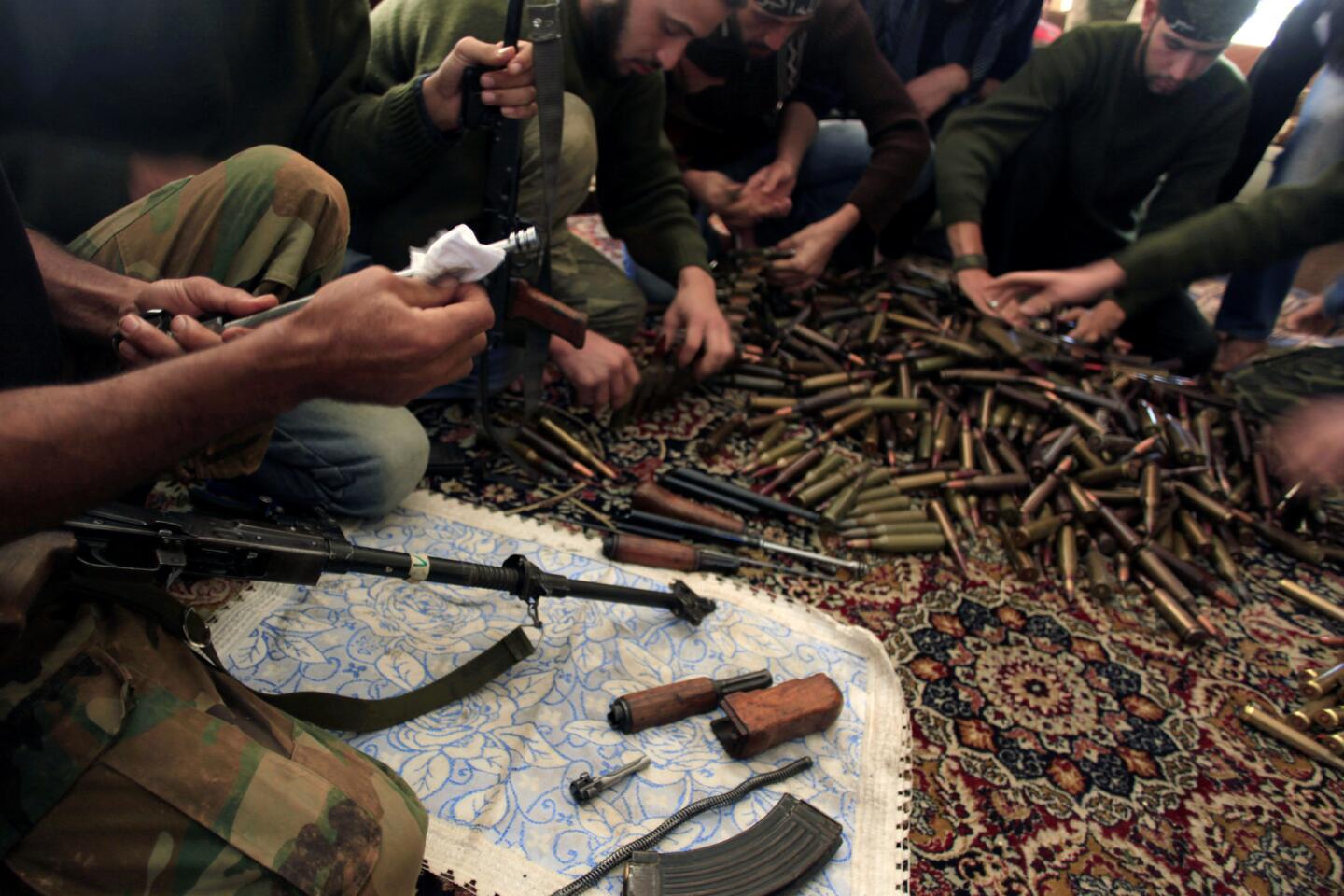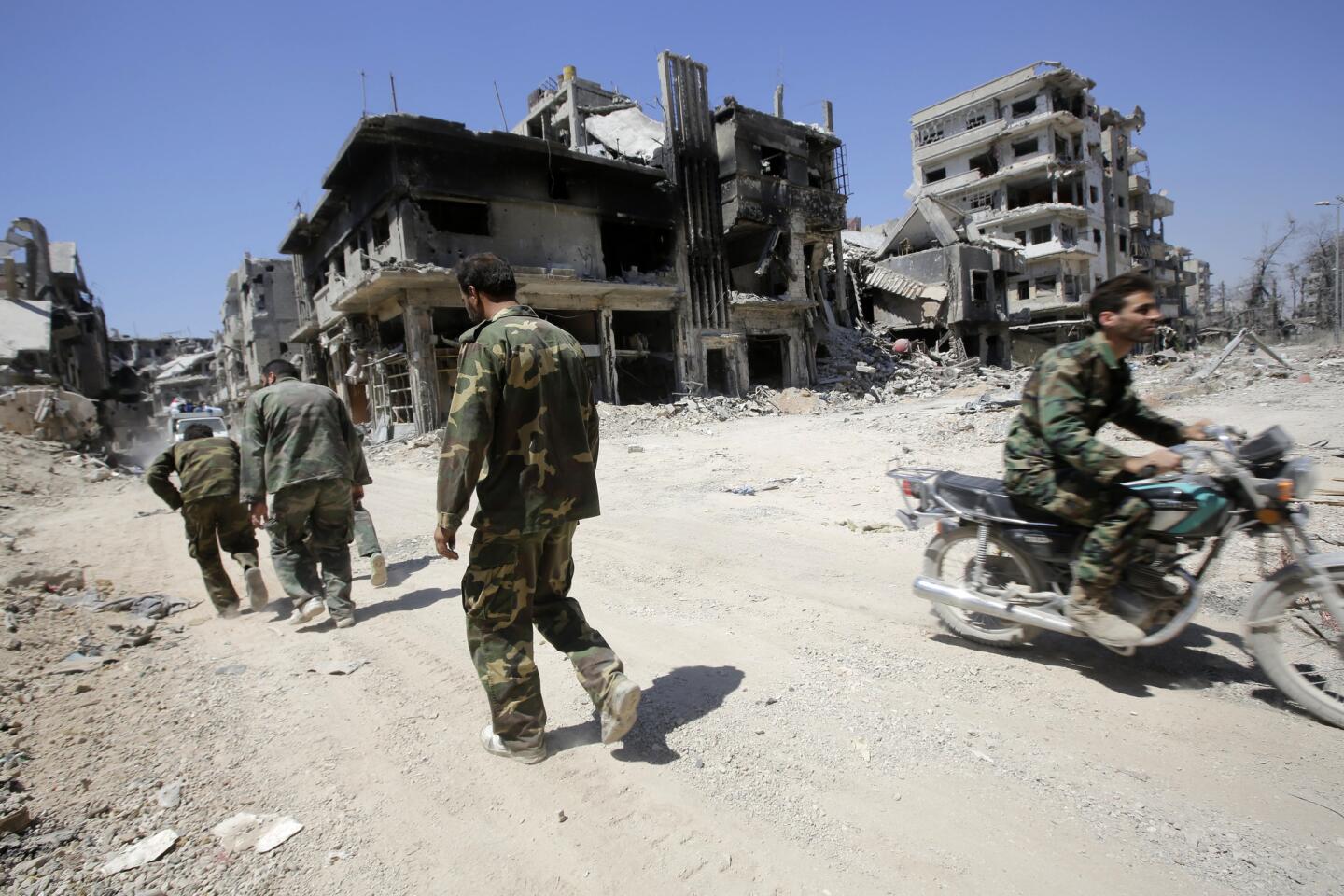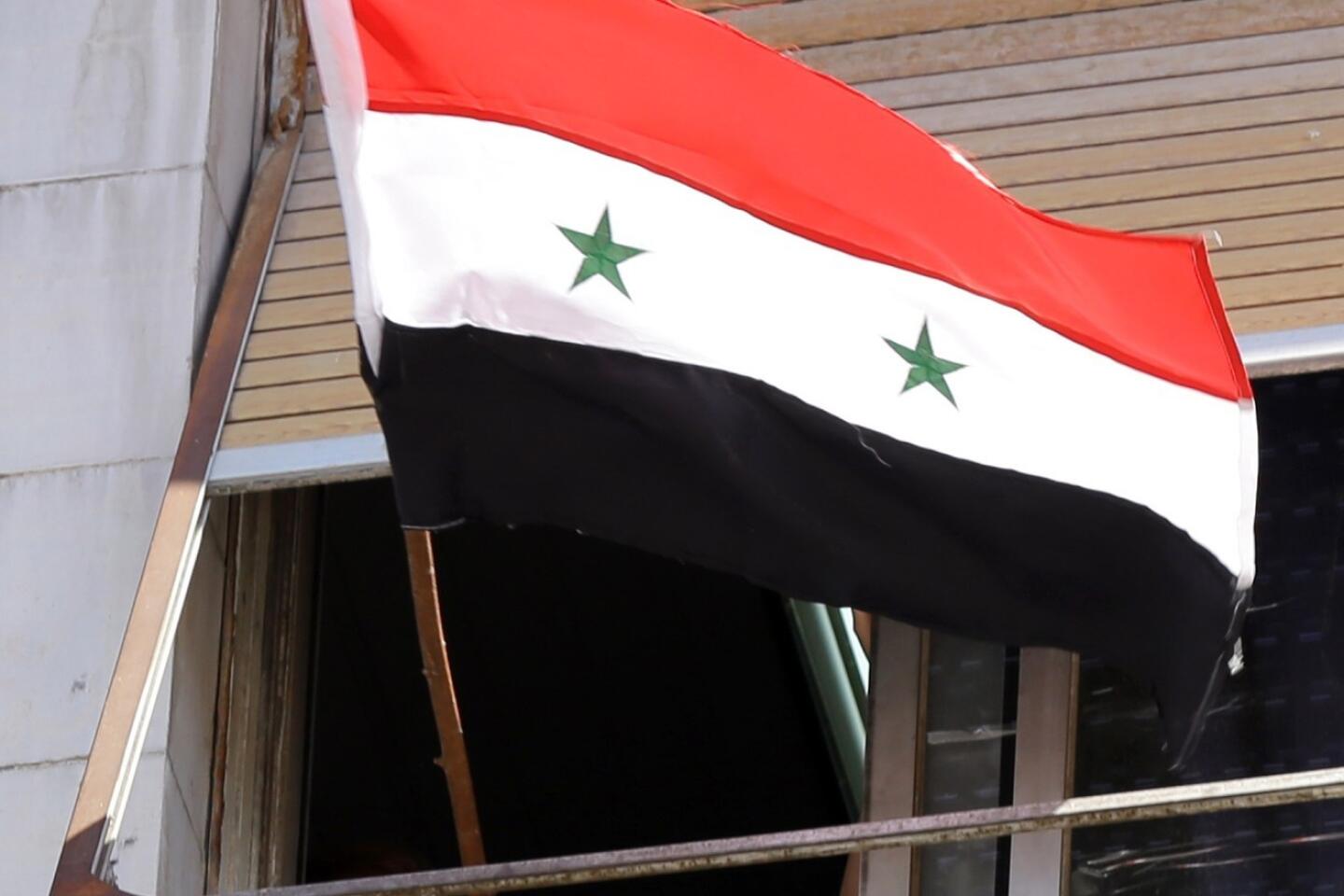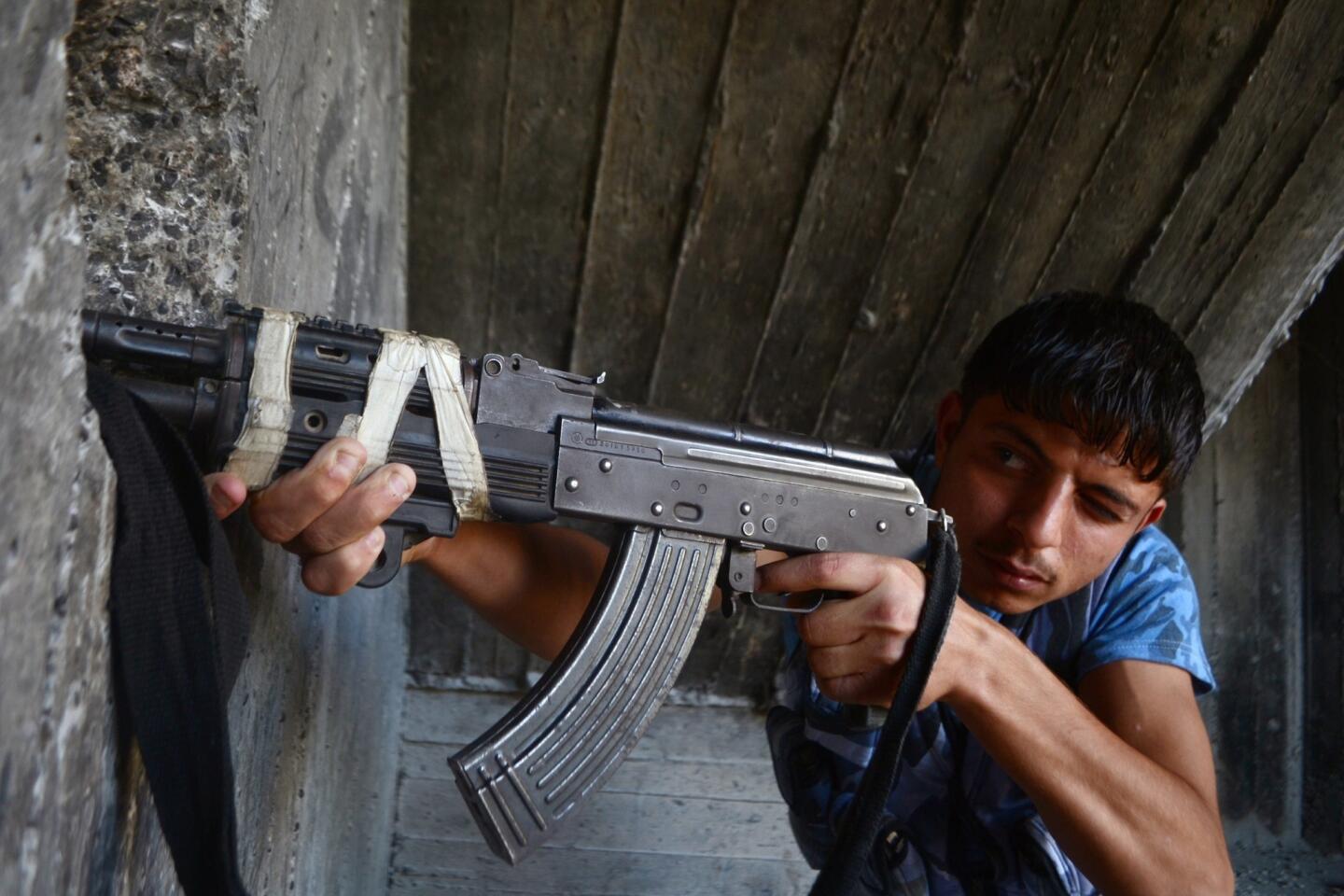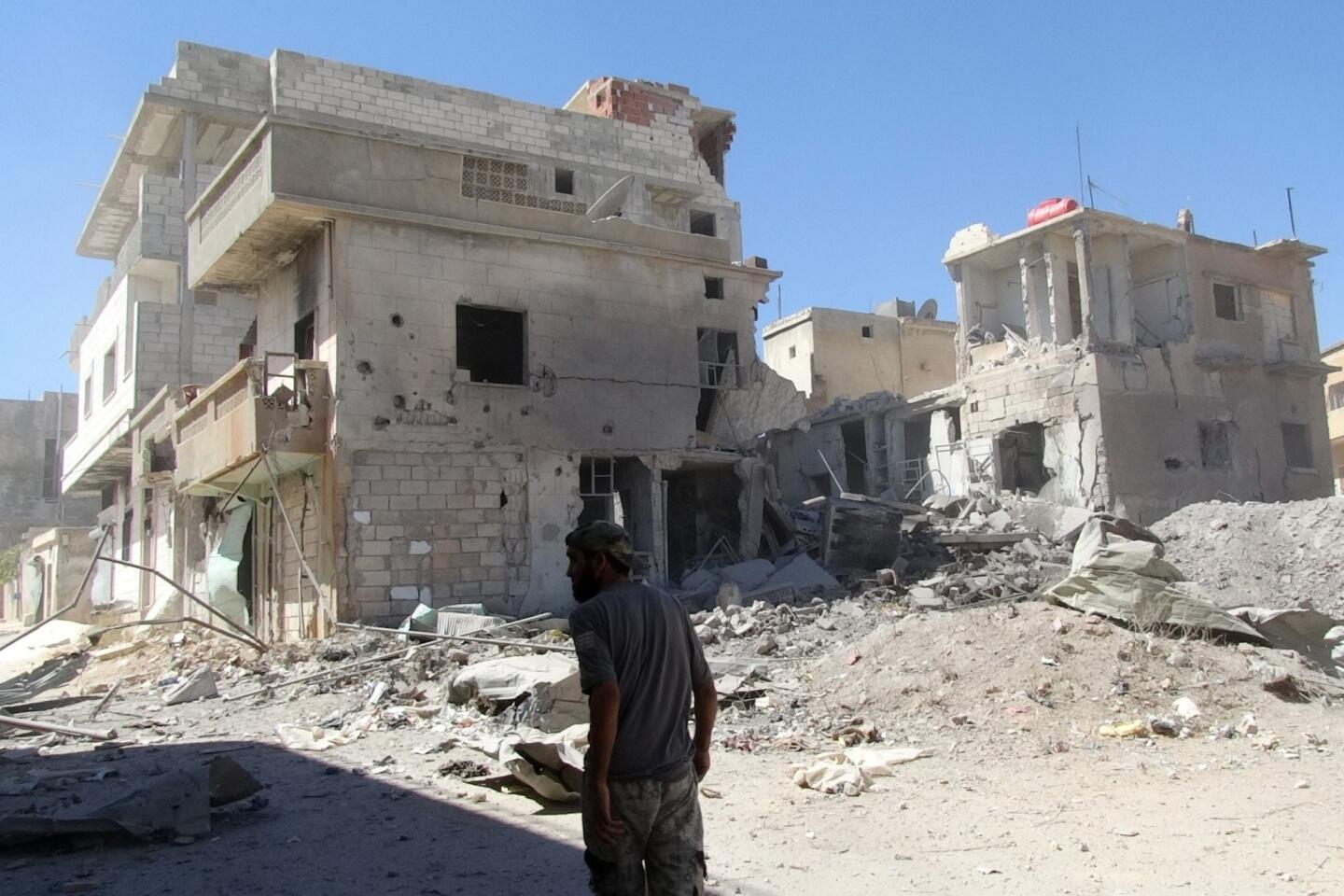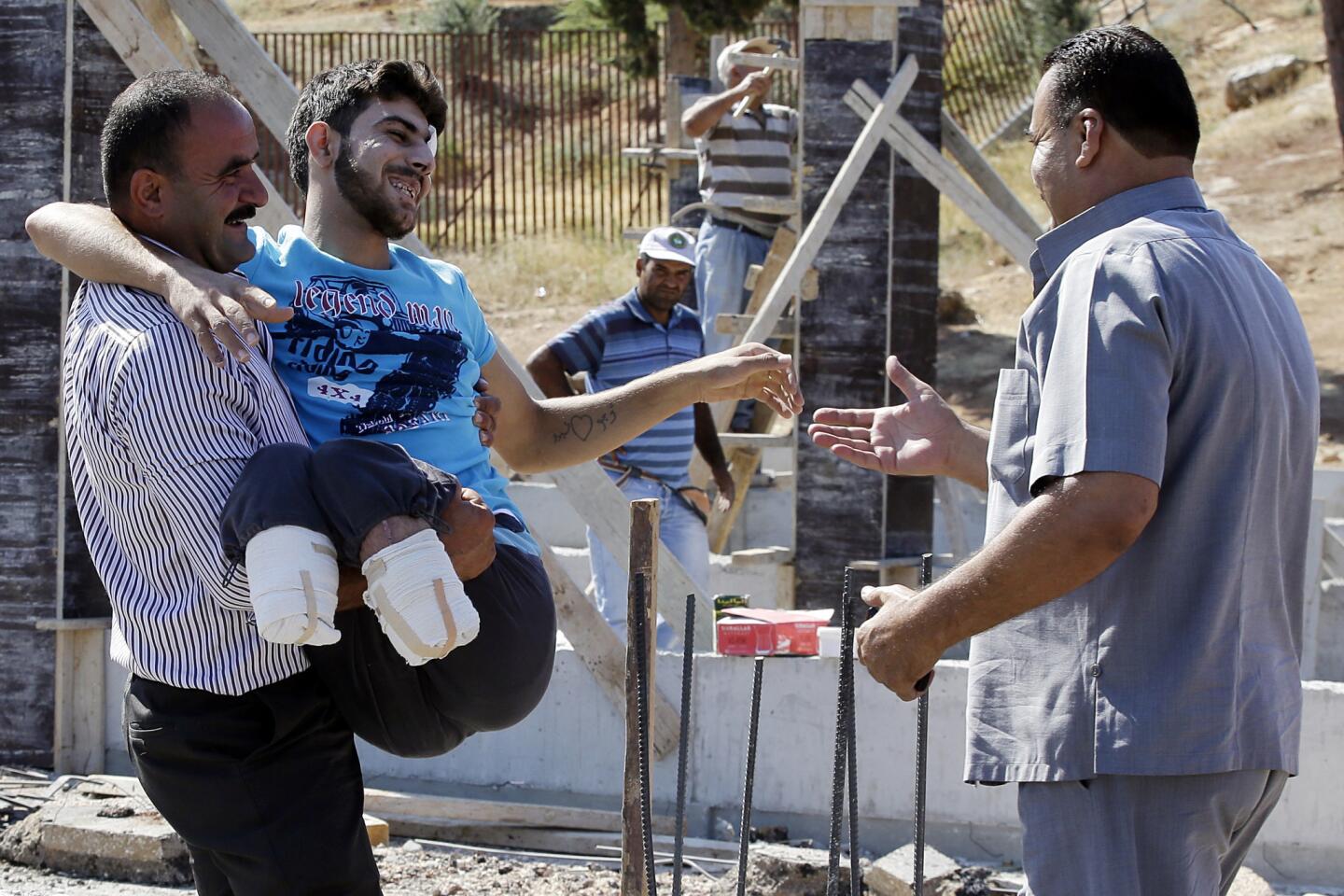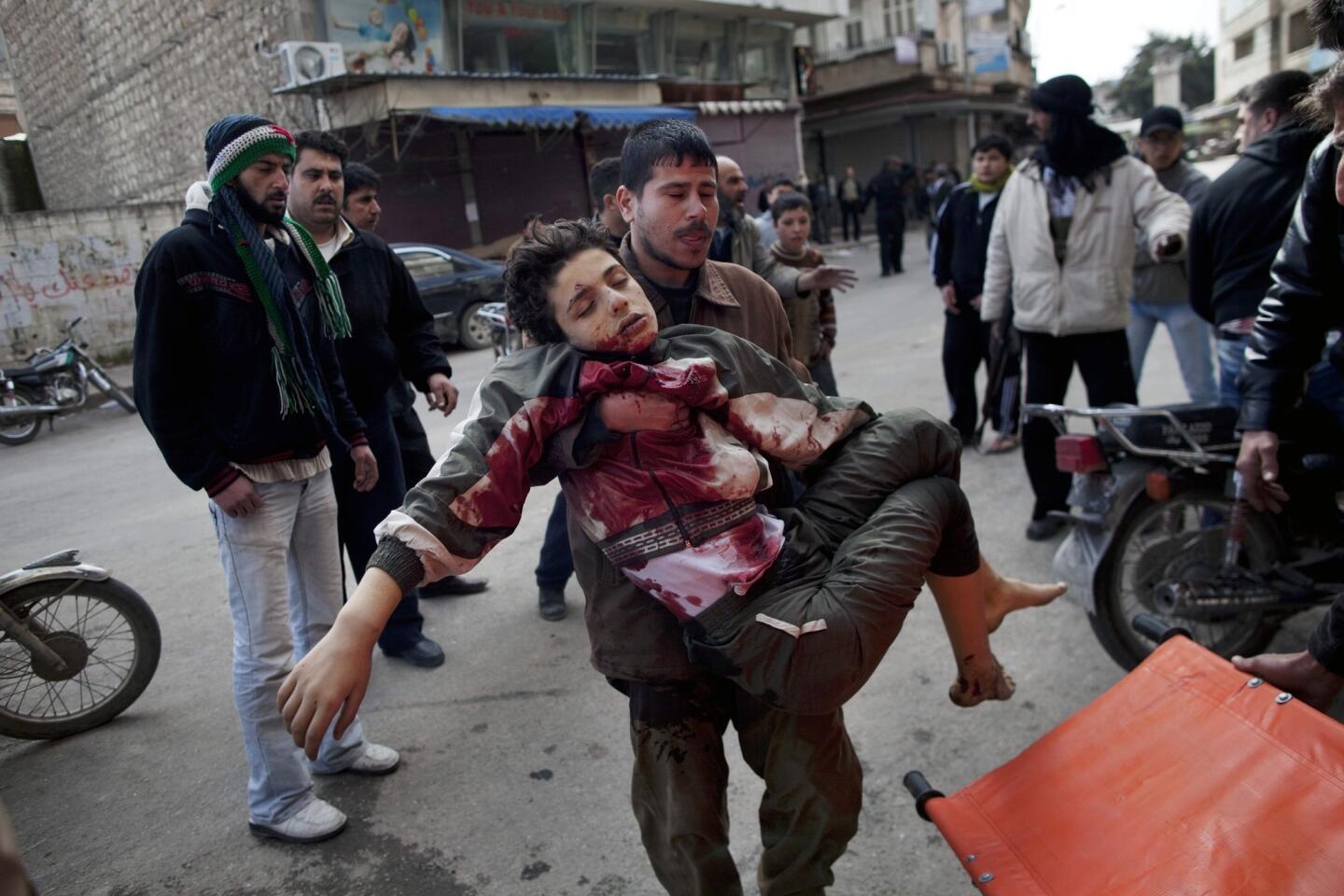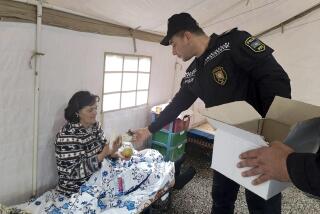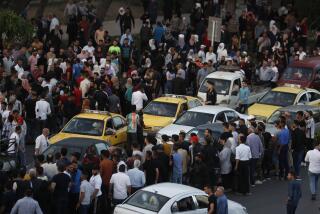First shipment of chemical weapons material leaves Syria
BEIRUT — The initial consignment of Syria’s most toxic chemical weapons material was shipped out of the country Tuesday, international officials said, advancing a cleanup effort widely seen as a success in the midst of a long civil war that has cost more than 100,000 lives.
The announcement came as the leader of an Al Qaeda-linked rebel group tried to broker a cease-fire among Syrian opposition factions that have been battling one another.
A “first quantity” of so-called priority chemical materials was moved from two sites to the Syrian port of Latakia and loaded onto a Danish commercial vessel, Sigrid Kaag, who heads the international effort to rid the country of its chemical arsenal, said in a statement.
The ship, accompanied by naval escorts provided by Denmark, Norway and Syria, headed for international waters to await the arrival of additional materials, said Kaag, special coordinator for the United Nations and the Hague-based Organization for the Prohibition of Chemical Weapons.
The initial shipment is among more than 1,000 tons of chemical agents to be destroyed under a U.N.-approved plan. Further details on the substances removed were not available.
Syrian President Bashar Assad agreed to neutralize his chemical weapons — including mustard gas and sarin, a nerve agent — last year as part of an accord brokered by the United States and Russia.
Meanwhile, fighting among various rebel militias in Syria has accelerated, reportedly resulting in hundreds of deaths among opposition fighters. The battles illustrate the deep divisions among the fragmented opposition coalition, composed of hundreds of rebel militias with varying agendas.
On Tuesday, the leader of a major rebel faction, Al Nusra Front, complained publicly that the internal strife was only benefiting Assad, whose military has made gains amid the disarray in the opposition ranks.
“The battlefield will pay the price of the loss of a great jihadi field, and the regime will be re-energized after it was close to oblivion,” said Abu Mohammed Julani, presumed pseudonym of the group’s leader.
Al Nusra Front, viewed by the U.S. government as a terrorist organization, has joined other Sunni Muslim rebel groups in battles against a powerful rebel faction known as the Islamic State of Iraq and Syria. Both Al Nusra Front and the Islamic State are regarded as offshoots of Al Qaeda that have flourished amid the turmoil of the Syrian uprising. The Al Qaeda agenda appears to be to create an Islamic “emirate,” incorporating Syria and neighboring Iraq.
Even as Al Nusra Front’s leader complained that fellow hard-line militants fighting with the Islamic State of Iraq and Syria were pursuing “a wrong policy ... that had a prominent role in exacerbating the conflict,” he warned that the clashes among rebel groups could benefit other Al Qaeda enemies beyond Assad. “The West and the [Shiite Muslims] will create for themselves a large foothold in the environment of this conflict if it continues,” he said.
Al Qaeda, which espouses a fundamentalist version of Sunni Islam, generally views Shiite Muslims as apostates, rejecting the tolerant version of Islam long practiced in Syria. Shiites are a minority in Syria, but are the majority in Iraq.
In the hope of gaining more aid from foreign backers, some Syrian rebel groups have joined coalitions that exclude Al Qaeda-linked factions. Some observers view the recent move against the Islamic State of Iraq and Sryia as an opposition attempt to assuage Western governments wary of the rise of Al Qaeda and other Sunni extremist factions in Syria.
Officials of the Syrian government reject any distinction between “moderate” and “extremist” rebels and have labeled all armed insurgents “terrorists.”
Syrian peace talks, which many rebel groups have rejected as illegitimate, are scheduled to begin Jan. 22 in Switzerland. It is still not clear who will represent the opposition at the negotiations, which are strongly supported by the United States and Russia.
U.S.-backed opposition spokesmen have long been demanding a guarantee that the conference will result in Assad’s ouster from power, a condition that the government in Damascus rejects. Some rebel commanders have portrayed the talks as a possible sellout of the uprising, which began nearly three years ago.
The head of the Islamic Front, a coalition of seven Syrian rebel factions, this week sent out a message on Twitter warning that any participants in the talks would be put on the group’s “wanted” list.
There were unconfirmed reports Tuesday, meanwhile, that the Islamic State of Iraq and Syria had executed a number of prisoners in the city of Aleppo as its forces came under fire from rival opposition groups.
Activists posted images on social media sites showing corpses with what appeared to be gunshot wounds to the head fired at point-blank range, as well as videos showing decapitated bodies in mass graves. The claims and images could not be independently verified because of restricted access to the volatile area.
In Damascus, the Syrian information minister, Omran Zoubi, hinted that Assad could seek reelection this year, rejecting demands from rebels and their backers that the president step down.
“The decision of whether or not President Bashar Assad will run for the presidency is up to him, and ... there’s a Syrian popular decision supporting him running for [the] presidency,” the official Syrian news service reported from Damascus.
Bulos is a special correspondent. Times staff writer Patrick J. McDonnell in Rome contributed to this report.
More to Read
Sign up for Essential California
The most important California stories and recommendations in your inbox every morning.
You may occasionally receive promotional content from the Los Angeles Times.
